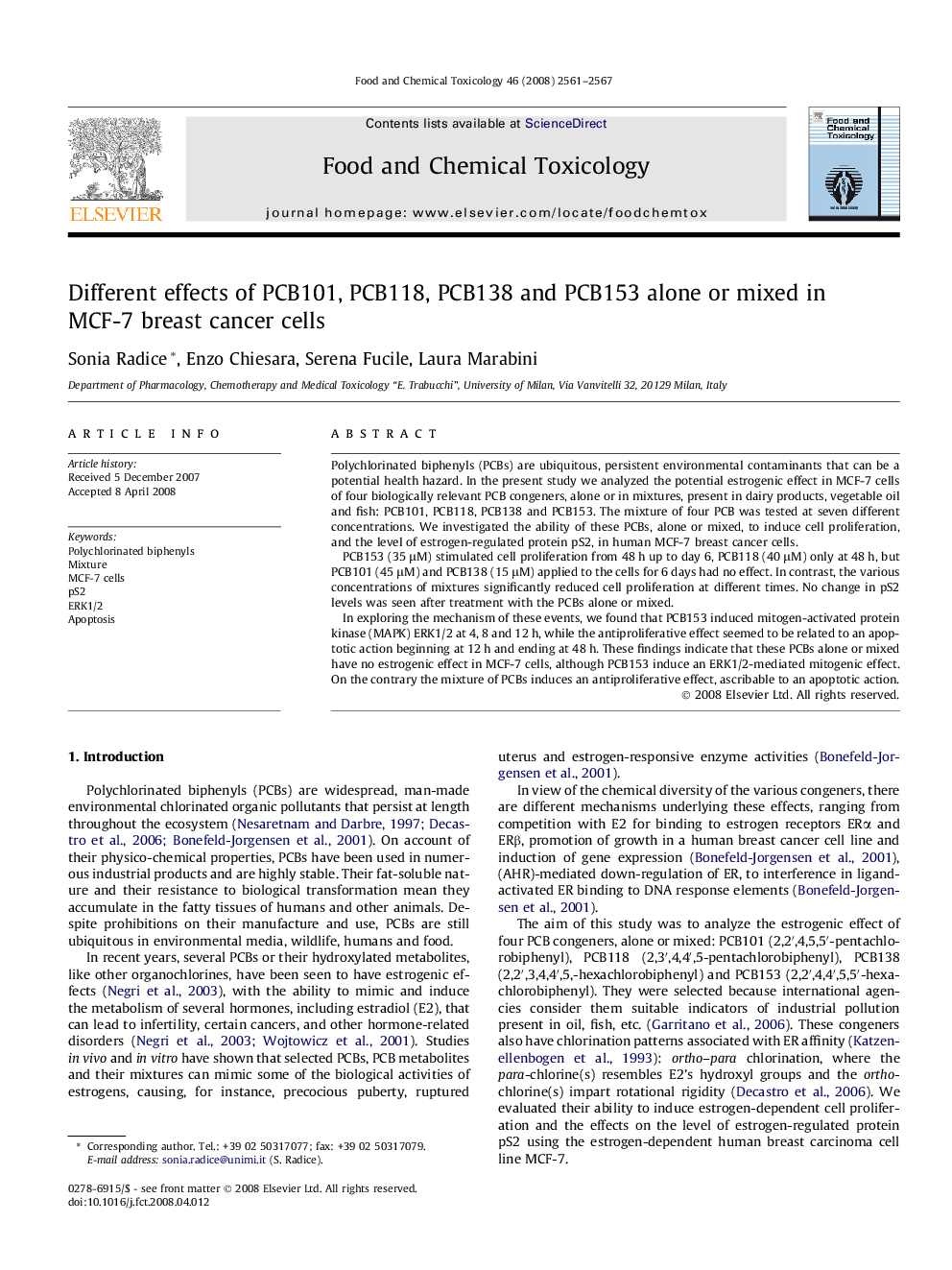| Article ID | Journal | Published Year | Pages | File Type |
|---|---|---|---|---|
| 2586597 | Food and Chemical Toxicology | 2008 | 7 Pages |
Polychlorinated biphenyls (PCBs) are ubiquitous, persistent environmental contaminants that can be a potential health hazard. In the present study we analyzed the potential estrogenic effect in MCF-7 cells of four biologically relevant PCB congeners, alone or in mixtures, present in dairy products, vegetable oil and fish: PCB101, PCB118, PCB138 and PCB153. The mixture of four PCB was tested at seven different concentrations. We investigated the ability of these PCBs, alone or mixed, to induce cell proliferation, and the level of estrogen-regulated protein pS2, in human MCF-7 breast cancer cells.PCB153 (35 μM) stimulated cell proliferation from 48 h up to day 6, PCB118 (40 μM) only at 48 h, but PCB101 (45 μM) and PCB138 (15 μM) applied to the cells for 6 days had no effect. In contrast, the various concentrations of mixtures significantly reduced cell proliferation at different times. No change in pS2 levels was seen after treatment with the PCBs alone or mixed.In exploring the mechanism of these events, we found that PCB153 induced mitogen-activated protein kinase (MAPK) ERK1/2 at 4, 8 and 12 h, while the antiproliferative effect seemed to be related to an apoptotic action beginning at 12 h and ending at 48 h. These findings indicate that these PCBs alone or mixed have no estrogenic effect in MCF-7 cells, although PCB153 induce an ERK1/2-mediated mitogenic effect. On the contrary the mixture of PCBs induces an antiproliferative effect, ascribable to an apoptotic action.
